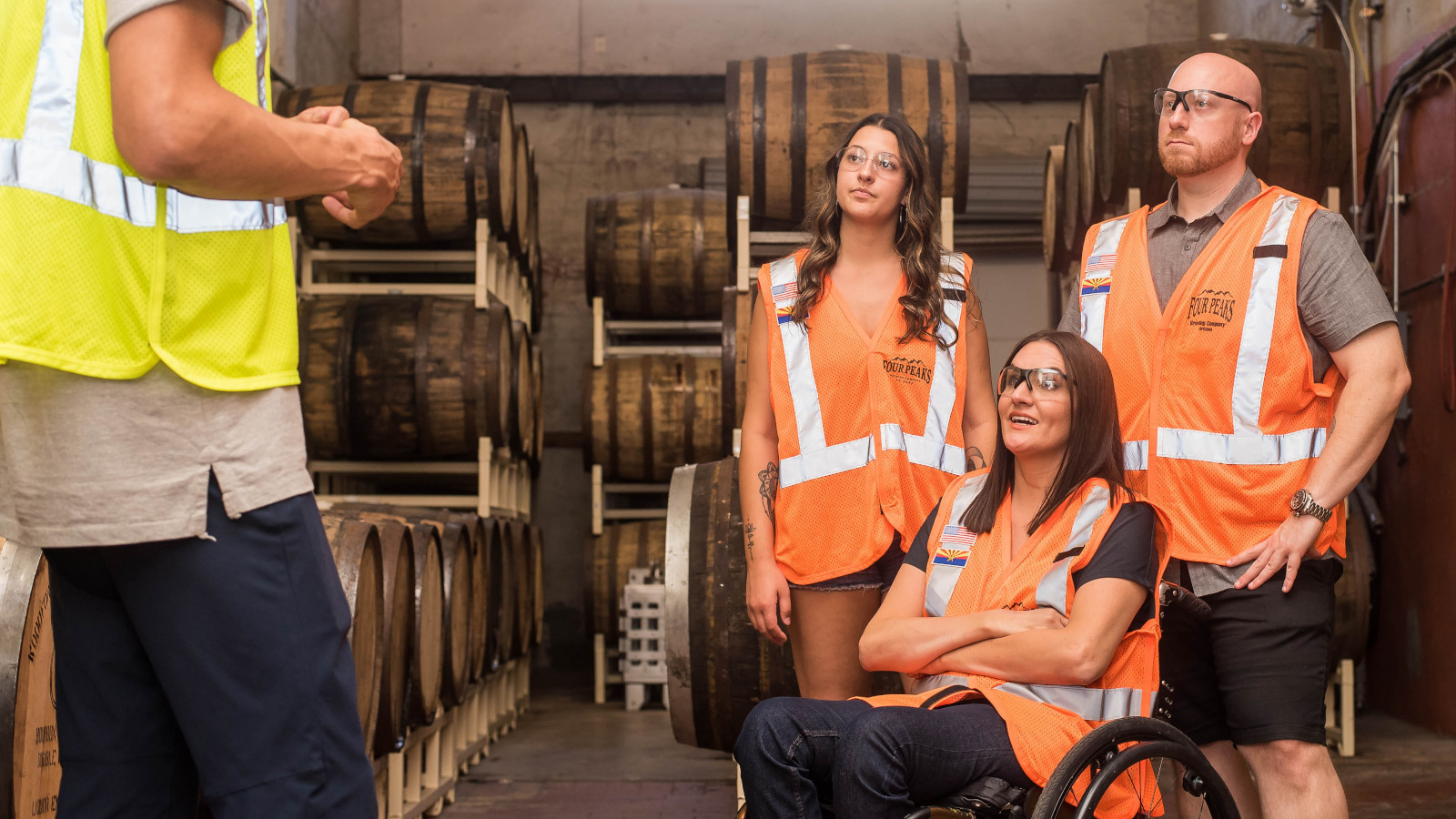
The Rev. George Corrigan compared the spiritual maturing of people to the aging of bourbon in the barrel. | ELEVATE/Pexels
The maturing of monks and converts can be likened to the aging and maturing of good barrels of bourbon, an apt comparison from Bardstown, Kentucky, and at Sacred Heart Catholic Church in Tampa, Florida.
The Rev. George Corrigan, pastor of the church, shared his thoughts on “Bourbon and the Spiritual Life” through the Aug. 23 issue of the church bulletin.
Bardstown is a small town that was the center of Roman Catholicism when the western frontier was made up of the territories west of the Appalachian Mountains, including Kentucky, Ohio, Michigan, Wisconsin, Indiana, Illinois, Iowa and Missouri, Corrigan said. The Diocese of Bardstown got its start in 1808 and is home to the Basilica of St. Joseph, the Sisters of Loretto Motherhouse and the Abbey of Our Lady of Gethsemane, the Trappist monastery that Thomas Merton called home.
Operating in and around the area are distilleries that include Barton 1792, Heaven Hill, Jim Beam and Maker’s Mark, earning it the title of Bourbon Capital of the World. Corrigan said in the bulletin that bourbon and the spiritual life might be connected not only because of this history.
Cardinal John Henry Newman noted that a slow, careful, well-attended distillation describes the spiritual life and how a doctrine develops, just like distilling bourbon, Corrigan said.
The connection can be seen between the two with aging barrels of bourbon maturing as do monks and nuns in annual rhythms. Their prayers expand and contract just like the barrels of bourbon.
Matthew Milliner drew parallels to the classic spiritual journey of purgation, which we know as repentance or conversion.
Corrigan brought out Thomas Merton’s thoughts on this as a deeper founding in the faith. Young converts, Merton wrote, think that work is their own because they do not yet understand God refines us and separates us from the slag of selfishness, all for us to grow toward the wholeness that is the perfect unity with God.
“Perhaps corn, barley, wheat and rye experience the same process," Corrigan said in the bulletin. "They are pulled from their comfortable summer homes in the fields to be converted, milled, turned into the slag and dross that is the 'mash.' Then subjected to new heat and fresh water, it experiences new growth and life (fermentation). At the end of purgation, just as the new convert is hardly a mature Christian, so too the bourbon mash is hardly bourbon ready to carry its maker’s label.”
This illumination strives toward a new understanding. Bourbon mash gets blasted by heat, a spiritual cleansing as the “beer” that it more resembles evaporates. What’s left is called “white dog.”
“It is in the process of becoming something else, a more fully complete version of the original grain, passed through the illumination of trauma, newly revealed, or at least pointing toward what it is called to be,” Corrigan noted.
This illumination is just the beginning, just as white dog is not bourbon. The white dog, like our spiritual life, needs aging and maturity.
“Just as aging in the barrel allows the oak to lend a flavor, a branding to the not-yet bourbon, so too the interior life of prayer is infused with the life of God,” Corrigan said in the bulletin.
The liquid in the barrel ages for years, sometimes leaking out when the barrel expands in the heat of summer or pulling in some sap from the wood as it contracts in the winter. When the barrel is opened, half the liquid may be gone— or it might even be empty. Corrigan reminded parishioners that Merton saw this spiritual process as emptying oneself, living for Him and not ourselves.
“With bourbon, as the volume in the barrel decreases, the quality of the bourbon increases," Corrigan concluded. "The less of it there is, the better it is. So too, as we decrease and let God increase, the less of 'us' the better we are. So that it is hard to tell where we end, and Christ begins. Perhaps it is only at the end where the analogy fails.”




 Alerts Sign-up
Alerts Sign-up